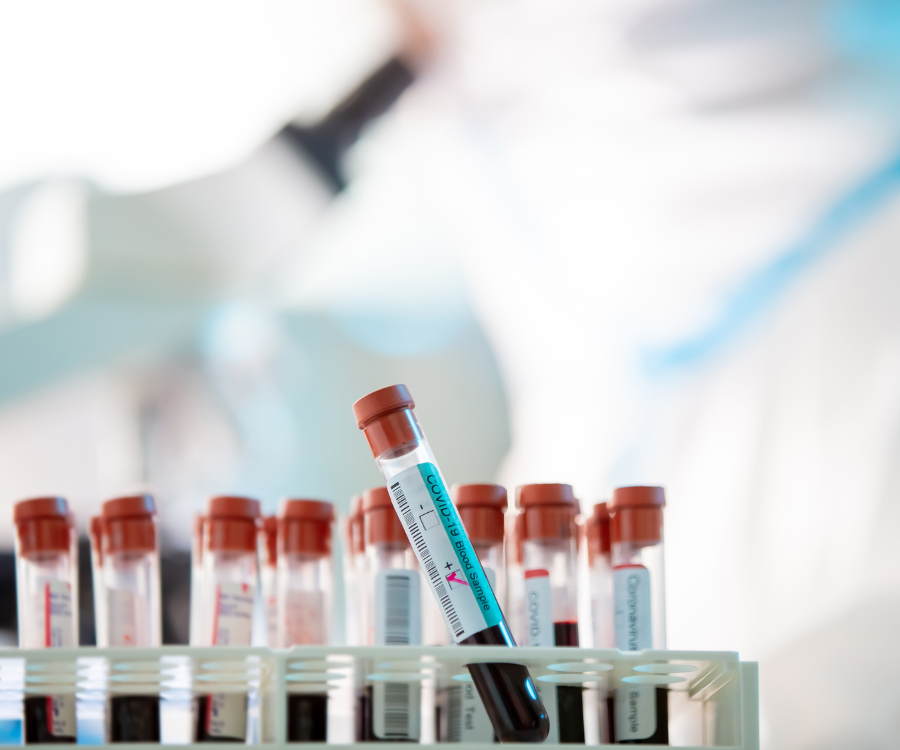Ever wondered what those vials of blood are really telling your doctor? Blood tests are a cornerstone of modern medicine, offering invaluable insights into your health. They can help diagnose conditions, monitor chronic diseases, and even give you a heads-up about potential issues before symptoms appear.
While the sheer number of possible blood tests can seem overwhelming, a few stand out as the most frequently requested. Let’s demystify the top 10 common blood tests and what they mean for you.
1. Complete Blood Count (CBC)
Think of the CBC as a snapshot of your overall blood health. It measures different components of your blood:
- Red Blood Cells (RBCs): These carry oxygen throughout your body. Abnormal levels can indicate anemia (low RBCs), dehydration, or other issues.
- White Blood Cells (WBCs): Your immune system’s defenders. High levels might signal an infection or inflammation, while low levels could indicate an immune system disorder or bone marrow problems.
- Platelets: Tiny cells that help your blood clot. Deviations can point to bleeding disorders or clotting risks.
- Hemoglobin and Hematocrit: These provide more detail about your red blood cells’ oxygen-carrying capacity and overall volume.
Why it’s done: Routine check-ups, diagnosing fatigue, fever, unexplained bruising, or to monitor existing conditions.
2. Basic Metabolic Panel (BMP) / Comprehensive Metabolic Panel (CMP)
These panels assess various chemicals in your blood, giving your doctor a peek into your metabolism and organ function.
- Basic Metabolic Panel (BMP): Includes eight key measurements, such as glucose (blood sugar), electrolytes (sodium, potassium, chloride, carbon dioxide – crucial for fluid balance), and kidney function markers (BUN and creatinine).
- Comprehensive Metabolic Panel (CMP): This is a more extensive version of the BMP, adding tests for liver function (like ALP, ALT, AST, bilirubin) and proteins (albumin, total protein).
Why it’s done: Routine health screenings, evaluating kidney and liver health, checking for diabetes, monitoring fluid and electrolyte balance.
3. Lipid Panel (Cholesterol and Triglycerides)
This test is all about your heart health. It measures different types of fats in your blood:
- Total Cholesterol: Overall cholesterol level.
- LDL (“Bad”) Cholesterol: High levels contribute to plaque buildup in arteries.
- HDL (“Good”) Cholesterol: Helps remove excess cholesterol from your arteries.
- Triglycerides: Another type of fat in your blood; high levels can also increase heart disease risk.
Why it’s done: Assessing risk for heart disease, monitoring cholesterol-lowering treatments.
4. Thyroid Function Tests (TFTs)
Your thyroid gland plays a vital role in regulating your metabolism. TFTs measure hormones related to thyroid activity:
- TSH (Thyroid-Stimulating Hormone): Often the first test done, it indicates how well your pituitary gland is stimulating your thyroid.
- T3 and T4: The actual thyroid hormones produced by your gland.
Why it’s done: Diagnosing conditions like hypothyroidism (underactive thyroid) or hyperthyroidism (overactive thyroid) if you’re experiencing symptoms like fatigue, weight changes, or mood swings.
5. HbA1c (Glycated Hemoglobin)
This test provides an average of your blood sugar levels over the past 2-3 months. Unlike a single glucose reading, it gives a longer-term picture of blood sugar control.
Why it’s done: Diagnosing and monitoring prediabetes and type 1 and type 2 diabetes.
6. Erythrocyte Sedimentation Rate (ESR)
The ESR is a general test that helps detect inflammation in your body. It measures how quickly red blood cells settle at the bottom of a test tube. A faster rate can indicate inflammation.
Why it’s done: To detect inflammation associated with infections, autoimmune diseases (like arthritis or lupus), and certain cancers. It doesn’t pinpoint the cause, but signals a need for further investigation.
7. C-Reactive Protein (CRP)
Similar to ESR, the CRP test also measures inflammation. CRP is a protein produced by your liver that increases rapidly in response to inflammation. There’s also a high-sensitivity CRP (hs-CRP) that can assess your risk for heart disease.
Why it’s done: Detecting infection or inflammation, monitoring chronic inflammatory diseases, and assessing heart disease risk (hs-CRP).
8. Coagulation Profile (Blood Clotting Tests)
These tests evaluate how well your blood clots. Common tests include:
- Prothrombin Time (PT) and International Normalized Ratio (INR): Measure how long it takes for your blood to clot. Often used to monitor blood-thinning medications.
- Partial Thromboplastin Time (PTT): Also assesses clotting time, focusing on different clotting factors.
Why it’s done: Diagnosing bleeding disorders, monitoring anticoagulant therapy, and assessing clotting risk before surgery.
9. Vitamin D Test
Vitamin D is crucial for bone health, immunity, and overall well-being. This test measures the level of vitamin D in your blood.
Why it’s done: To check for vitamin D deficiency, especially if you have symptoms like bone pain or muscle weakness, or are at high risk (e.g., limited sun exposure, certain medical conditions).
10. Prostate-Specific Antigen (PSA) Test
This blood test measures the level of PSA, a protein produced by the prostate gland. Elevated PSA levels can sometimes indicate prostate cancer, but can also be caused by other non-cancerous conditions.
Why it’s done: Screening for prostate cancer, often debated and discussed between patients and their doctors due to varying recommendations and interpretations.
Important Note: Blood test results should always be interpreted by a healthcare professional in the context of your overall health, medical history, and symptoms. Abnormal results don’t always mean something serious, and normal results don’t always rule out a problem. Your doctor is the best person to discuss your results and what they mean for you.

